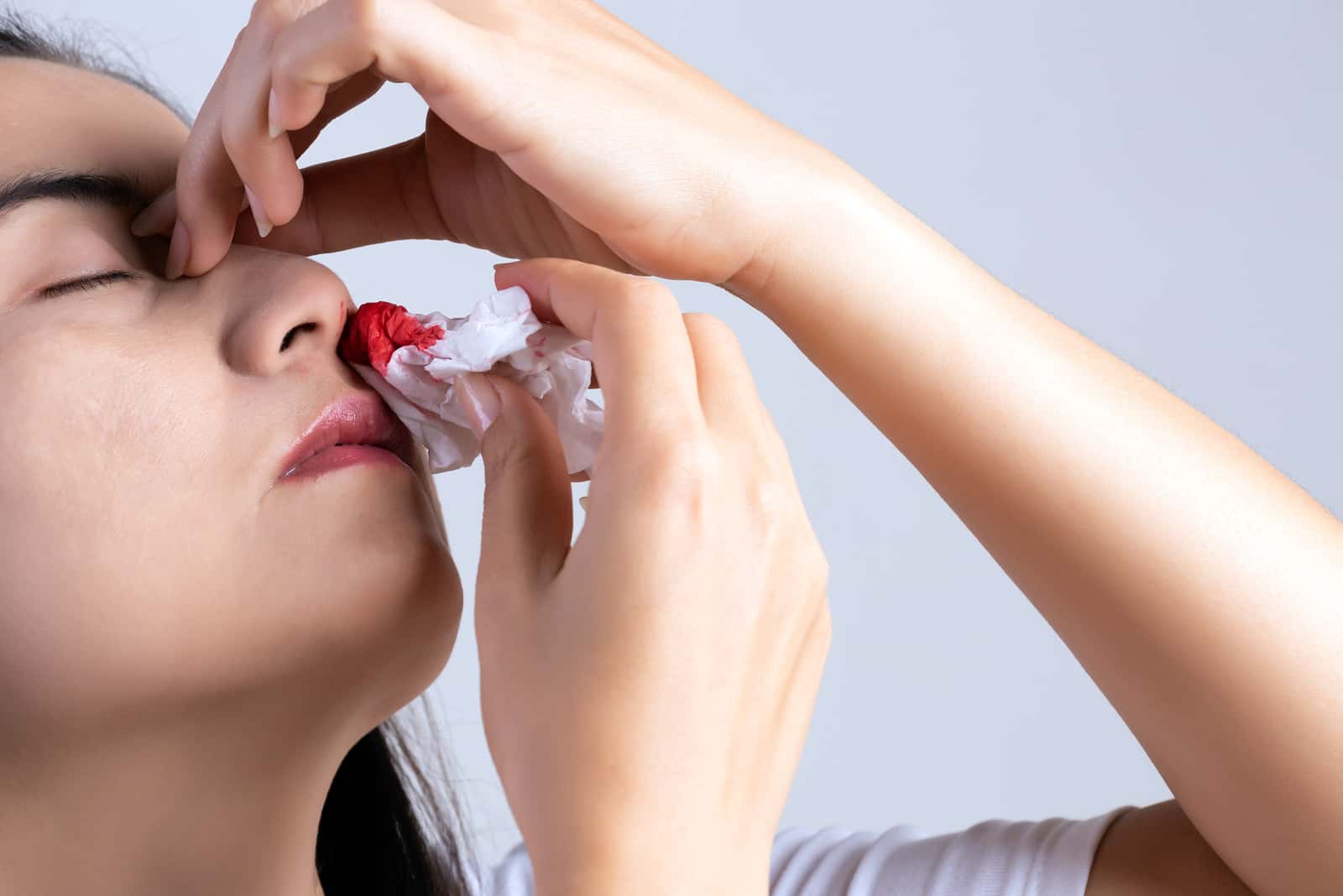
A bloody nose can be merely a nuisance or it can be a medical emergency. In most cases, people with minor nosebleeds find them uncomfortable, if not alarming, and would be pleased to find a way to treat nosebleeds. Here, one reader reports on a successful but scary strategy.
A Hemorrhoid Remedy to Treat Nosebleeds?
Q. I have something like varicose veins in my nose that cause frequent nosebleeds. My nose is often dry regardless of weather conditions.
To counteract this, I have used either Vaseline or Preparation H as the ear, nose and throat specialist suggested. Believe it or not, the Preparation H works great and really keeps the bleeds at bay. If I have a mild bleed, I use Preparation H for at least a week. Otherwise, I use one of these every other day or so.
A. We understand why Preparation H might be helpful to treat nosebleeds. It contains phenylephrine, a vasoconstrictor. That means it shrinks blood vessels in the nose as well as the rear end.
There is a problem with your strategy, however. Both Vaseline and Preparation H contain petroleum jelly (also known as petrolatum). Physicians have been arguing about the benefits and risks of putting petrolatum in the nose for years.
A report in BMC Ear, Nose, and Throat Disorders (Aug. 19, 2016) asks doctors to warn against:
“long-term application of petroleum-based oils and ointments to the nose and discourage such use of these products.”
The researchers were reporting on a case of lipoid pneumonia in an older woman who regularly used Vicks VapoRub in her nose. It too contains petrolatum, and the packaging warns “Do not use in nostrils.”
You can read much more about why you should keep petroleum jelly out of your nose at this link:
Love It or Hate It, Petroleum Jelly Elicits Emotion
“Dermatologists often recommend petroleum jelly to condition and moisturize dry skin. It may be safe for lips, but keep it out of your nose!”
Treat Nosebleeds
If you want the vasoconstrictor action of phenylephrine without the petroleum jelly, you might want to ask your ENT doctor about Neo-Synephrine Nasal Spray. It contains phenylephrine without petrolatum. We don’t know if it will help your nosebleeds as much, since it does not contain moisturizer. You could add a saline gel or nasal spray to your regimen.
Saline Nasal Gel to Prevent Nosebleeds:
This reader offers a different approach:
Q. I had a couple of scary nosebleeds a few years ago, and my ear-nose-and-throat clinician advised me to use Ayr Saline Nasal Gel two or three times a day. He also suggested that I get a humidifier installed on my furnace. When I did this, it helped with my nose and my skin as well.
I’ve had great success with this method and haven’t had any nosebleeds, not even a hint of blood. I’m very grateful to my ENT PA for the recommendations on how to prevent nosebleeds.
This nasal gel is affordable. It’s definitely worth looking into if you have problems with dry nose.
Why Saline Is Better Than Petroleum Jelly:
A. Saline sprays or gels are a safe way to moisturize a dry nose. Although people sometimes tell us they like to use petroleum jelly products such as Vaseline or Vicks VapoRub, these are not appropriate nasal moisturizers. To prevent nosebleeds, you should avoid oil-based products, as they might end up in the lungs and cause inflammation.
Here is another take on this common problem:
Q. I was a victim of frequent nosebleeds. My doctor suggested I soak a small wad of cotton with a few drops of Afrin and put that in my nostril. It worked right away to treat nosebleeds.
How to Prevent Nosebleeds:
I was more interested in eliminating the nosebleeds than dealing with a bloody mess, so I began rubbing a little Vaseline in each nostril. I’ve done that for two years and have only had two slight nosebleeds during that time. Apparently, keeping the membranes moist does the trick.
A. Regular use of petroleum jelly in the nose could lead to inflammation of the lungs (lipoid pneumonia). Instead, moisturize dry nasal passages with a saline solution.
Afrin Nasal Spray contains oxymetazoline, a compound that constricts blood vessels. This would be helpful to treat nosebleeds (American Family Physician, Aug. 15, 2018). Used too often, however, Afrin can lead to rebound congestion that can make your nose feel stuffy.
Many readers report that a home remedy can be helpful against nosebleeds. Doctors recommend pinching the nose to put pressure on the bleed. Although some people laugh at the idea of putting a ring of keys down the back of the neck, others insist it works.
One reader offered this:
“As a youngster in England 50 years ago, I got a bad nosebleed while walking home. As I passed a baker’s shop, the owner noticed my problem, took me inside, put me on the shop floor and slipped a huge cold door key down my back. My nose stopped bleeding immediately.”
Please share your own story about stopping nose bleeds in the comment section below. Thank you for supporting The People’s Pharmacy.
Citations
- Womack JP et al, "Epistaxis: Outpatient management." American Family Physician, Aug. 15, 2018.

